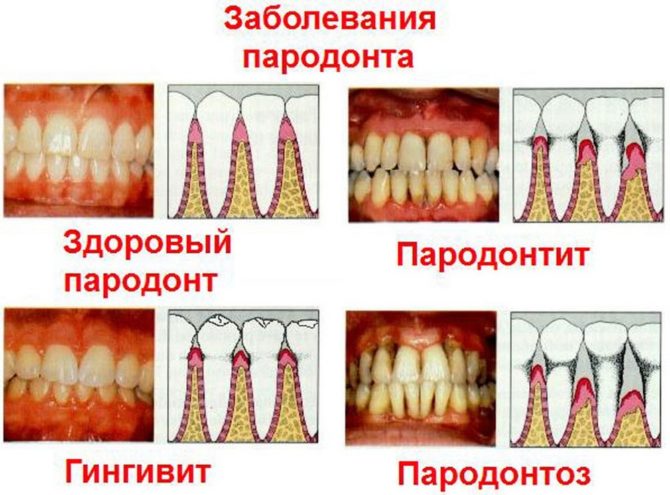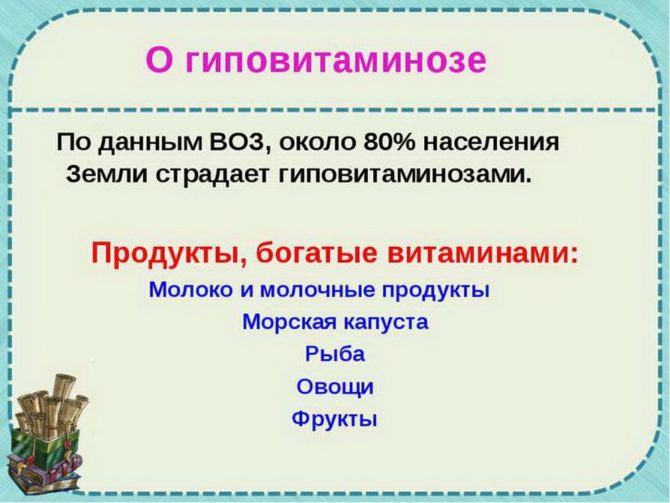Why does a metallic taste appear in the mouth and how to deal with it
A taste of metal may appear due to the use of specific dishes or banal bleeding of the gums. Usually he does not linger for a long time and disappears without any outside interference.
If a metallic taste in the mouth occurs repeatedly and for no apparent reason, then it is better to talk about the problem with the doctor. It is necessary to detect and eliminate the factor that led to a change in taste perception. And to do it yourself can be difficult, since many pathologies are asymptomatic and are detected only through laboratory tests.
Content
Why does a metallic taste appear in your mouth?
A specific taste is felt due to an increase in the concentration of metal ions in the human body. Very rarely, this occurs as a result of chemical poisoning. For example, arsenic, zinc or cadmium.
Most of the poisoning is recorded at production facilities and in laboratories that use toxic compounds. Persons working with hazardous substances cannot be ignored even by the slightest change in perception. Carelessness can cost them their lives.
The more common causes of a taste of metal in the mouth are due to external circumstances, the development of common diseases, hormonal disruptions or side effects from medications.
The influence of household factors
A taste of iron may appear after drinking tap water. An enormous amount of iron-containing sediment accumulates in old pipes, which dissolve in water and, falling together with it in the oral cavity, settle on the mucosa and oxidize. And a person begins to feel a sour smell and a metallic taste.
 The same reaction can cause mineral water. Many drink it uncontrollably to enrich the body with trace elements. However, their excess is harmful to health no less than a lack. Therefore, doctors do not recommend drinking more than 2 glasses of ordinary medicinal-table mineral water per day.
The same reaction can cause mineral water. Many drink it uncontrollably to enrich the body with trace elements. However, their excess is harmful to health no less than a lack. Therefore, doctors do not recommend drinking more than 2 glasses of ordinary medicinal-table mineral water per day.
Another common household factor is use of stainless steel, aluminum or cast iron cookware. If you cook in it a dish of foods with a high acid content, then the latter will react with the material, which will lead to the appearance of a metallic taste.
The effect of common diseases
In addition to domestic factors, internal pathologies affect the change in taste perception. An unpleasant symptom in this case is observed for a long period of time.
Oral diseases
Quite often, the taste of metal indicates the development of such dental diseases:
- Glossitis - Infectious inflammation of the mucous membrane of the tongue, provoked by thermal, chemical burns or injuries. The main symptoms: swelling of the muscle organ, redness of its surface, a feeling of bitterness and the smell of iron from the mouth.
- Periodontitis, periodontitis - diseases affecting the gums. The inflammatory process provokes periodontal deformity - the tissues that surround the tooth. As a result, capillaries are damaged and bleeding develops.Blood, which contains a large amount of iron, and gives saliva a metallic taste.
- Gingivitis - inflammation of the gums, which is accompanied by their redness, swelling and bleeding. As additional signs, pain, copious plaque and acid breath can be highlighted.
Pathology of ENT organs
Sometimes the smack of metal on the tongue indicates a fungal infection of the mucous membranes of the pharynx, larynx, nose and sinuses. The following signs may indicate the development of an infectious process:
- sore throat;
- hearing loss;
- bleeding from the nose;
- feeling of dryness in the oral cavity;
- pain in the auricle or in the sinuses;
- increased sensitivity of mucous membranes to food at border temperatures and spicy foods;
- white curdled coating covering the affected area and thickening thickly in the morning.
Anemia
Another common cause of a metallic taste in your mouth is an imbalance in minerals. This phenomenon is observed with anemia, a pathological condition characterized by a decrease in the concentration of hemoglobin and, sometimes, red blood cells, per unit volume of blood.
Despite the paradox, one of the main symptoms of the disease, closely associated with iron deficiency, is the taste of iron in the mouth. In addition, with anemia:
- drowsiness, weakness is manifested;
- migraine attacks occur;
- often dizzy;
- heart rhythm is disturbed;
- mucous membranes are dehydrated;
- brittle nails;
- the tongue goes numb.
A routine blood test is taken to confirm anemia. After treatment, which includes taking iron-containing drugs, the hemoglobin concentration is normalized - the metallic taste disappears.
Hypovitaminosis
A lack of vitamins can also lead to an iron taste in the mouth. This condition of the body is called hypovitaminosis and is characterized by symptoms such as sleep disturbance, low physical and intellectual activity, and baseless irritability.
Against the background of vitamin deficiency, a certain disease develops. For example, a lack of vitamin B1 can lead to pathologies such as beriberi, polyneuritis, paralysis, and damage to the central nervous system. Each ailment is characterized by more specific symptoms.
A generalized list of possible signs:
- visual impairment;
- frequent conjunctivitis;
- constipation
- nausea;
- decreased appetite;
- headaches;
- paralysis;
- tachycardia;
- dyspnea;
- amyotrophy;
- nosebleeds;
- allergic manifestations.
Gastrointestinal diseases
The most common prerequisite for the appearance of a metallic taste in the mouth in both men and women is the pathology of the gastrointestinal tract. Moreover, according to the severity of sensation, one can judge the stage of development of the ailment.
| Affected organ | Likely diseases | General symptoms |
|---|---|---|
| Gall bladder |
|
|
| Stomach |
|
|
| Intestines | Any pathology that leads to disruption of the body. |
|
| Liver | Any disease characterized by impaired liver function. |
|
CNS diseases
The nervous system is responsible for processing the impulses that come from the taste buds. Therefore, the perception of taste can be distorted in the pathology of the central nervous system. For example, against the background of a stroke, facial neuritis, Alzheimer's or Parkinson's.
The main signs of central nervous system damage:
- complete loss or partial decrease in muscle strength;
- tremor - trembling in the fingers, chin, upper limbs;
- impaired speech, coordination;
- involuntary muscle contractions;
- pain in the back, legs, arms, neck;
- insomnia or excessive drowsiness;
- persistent migraine;
- the smell and taste of copper in the mouth;
- sometimes various parts of the body go numb.
Diabetes
A metallic taste in the tongue can mean the development of diabetes mellitus, a disease of the endocrine system that arises when insulin is not sufficiently produced. The sensation occurs during a period of critical decrease in hormone production and provokes an increase in the concentration of acetone in the urine. If you introduce insulin to the patient, the taste will disappear or become barely noticeable.
In diabetes mellitus, dry mucous membranes, constant thirst, increased appetite are observed. Along with taste changes, visual impairment develops.
Causes of the taste of metal in the mouth in women
In women, the cause of the taste of iron in the mouth can be not only a lack of insulin, but also an imbalance of sex hormones: estrogen and progesterone. Often, hormonal changes are observed in adolescence and before menopause. During these periods, unpleasant symptoms are suppressed by corrective therapy and quickly disappear.
An imbalance can occur against the background of other reasons:
- thyroid pathology;
- consequences of abortion and some surgical interventions;
- the use of improperly selected contraceptives;
- too strict diets;
- heredity;
- sexually transmitted infections;
- excessively late or early onset of sexual activity;
- weakened immunity and some common diseases;
- pregnancy.
Why there is a taste of metal in the mouth during pregnancy
In addition to hormonal changes, the taste of metal in the mouth in women can occur for two reasons:
- taking prenatal vitamin complexes that are able to give such an effect as a change in taste perception due to the constituent minerals and other compounds;
- gastroesophalic reflux is a condition that is characterized by frequent urge to vomit and can provoke the appearance of a sour smell and iron aftertaste.
Specific prerequisites
A metallic taste in the mouth does not always indicate some kind of internal pathology or the presence of a domestic provocateur. The perception of both women and men can be influenced by specific factors. Among them:
 Medication. The iron aftertaste is due to toxic drugs that inhibit liver function. These include tetracycline, metronidazole, lansporazole and some types of dietary supplements.
Medication. The iron aftertaste is due to toxic drugs that inhibit liver function. These include tetracycline, metronidazole, lansporazole and some types of dietary supplements.- Professional activity. The harmful substances with which a person works constantly accumulate in his body and provoke the occurrence of various side effects, including cough and sour, bitter or aluminum aftertaste. Particularly dangerous chemical elements include zinc, arsenic, cadmium, pigs, mercury, copper. Some of these substances are often used in the manufacture of paints.
- Diets. Long hunger strikes in combination with insufficient fluid intake lead to dehydration, which disrupts metabolic processes. As a result, a person feels a constant weakness, dizziness and taste of aluminum.
How to determine the cause
To find out what the taste of metal in the mouth means, you need to pay attention to the conditions under which it arose. For example, if the sensation manifests itself after drinking water, it is necessary to check the condition of the pipes. A sharp change in the composition of food or taking medications can also affect the perception of receptors.
If the reason lies in the development of any ailment, a number of concomitant symptoms will indicate this:
- pruritus, thirst in the morning, visual impairment accompany diabetes;
- dry throat, cough, white coating on the tonsils - pharyngitis and tonsillitis;
- abdominal cramps, heartburn, belching - stomach ulcer;
- nausea, weight loss, lack of appetite - liver disease;
- pain in the right side, bitterness, alternating diarrhea and constipation - pathology of the gallbladder;
- drowsiness, weakness, pallor, dizziness and arrhythmia - anemia.
Diagnosing yourself is quite difficult. Even with an understanding of the nature of this manifestation, you can not do without consulting a doctor and laboratory tests. Therefore, if the taste of iron in the mouth is observed for a long time, it is worth contacting a therapist who will prescribe the necessary tests. The narrower specialist will be involved in the treatment: a gastroenterologist, ENT, a pulmonologist, an endocrinologist, or even an oncologist.
How to get rid of a symptom
Specific drugs with which to stop the taste of iron do not exist. But you can reduce the degree of manifestation. One way is to rinse your mouth with a soda solution. For its preparation, 2 tbsp. l soda and 1 tsp. salts are combined with 200 ml of boiling water and thoroughly dissolved. However, without eliminating the cause, it will not be possible to completely get rid of the symptom.








